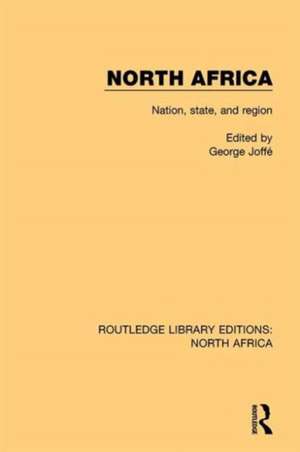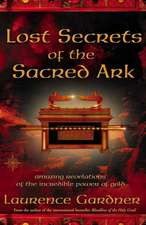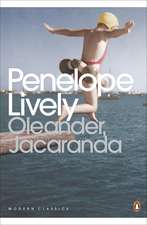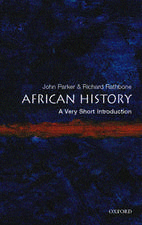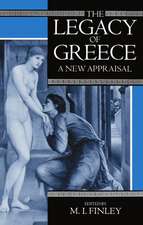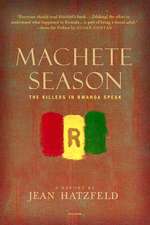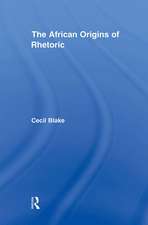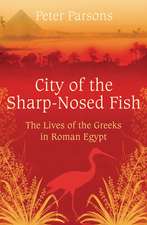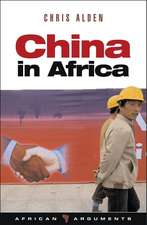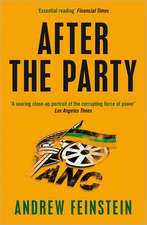North Africa: Nation, State, and Region: Routledge Library Editions: North Africa
Editat de George Jofféen Limba Engleză Hardback – 24 noi 2015
In the post-Cold War world, North Africa took on a new significance for Europe as issues of migration and regional trade began to dominate the European agenda. This book, first published in 1993, endeavours to investigate the background to the political developments of modern North Africa. It not only looks at the pre-colonial past but also investigates the effect of the colonial period itself on the regional dimension in view of the creation of the UMA, a confederal regional organisation, in early 1989. The contributors to this volume are all people with long experience of the North African political and historical scene.
Preț: 821.94 lei
Preț vechi: 1240.58 lei
-34% Nou
Puncte Express: 1233
Preț estimativ în valută:
157.27€ • 164.22$ • 129.87£
157.27€ • 164.22$ • 129.87£
Carte tipărită la comandă
Livrare economică 16-30 aprilie
Preluare comenzi: 021 569.72.76
Specificații
ISBN-13: 9781138122734
ISBN-10: 1138122734
Pagini: 322
Dimensiuni: 156 x 234 x 23 mm
Greutate: 0.57 kg
Ediția:1
Editura: Taylor & Francis
Colecția Routledge
Seria Routledge Library Editions: North Africa
Locul publicării:Oxford, United Kingdom
ISBN-10: 1138122734
Pagini: 322
Dimensiuni: 156 x 234 x 23 mm
Greutate: 0.57 kg
Ediția:1
Editura: Taylor & Francis
Colecția Routledge
Seria Routledge Library Editions: North Africa
Locul publicării:Oxford, United Kingdom
Public țintă
Postgraduate and UndergraduateCuprins
Part 1. The Pre-Colonial Period 1. Corsairing in the Economy and Politics of North Africa Jerome Bookin-Weiner 2. The Impact of the French Conquest of Algeria on Morocco (1830-1912) Mohammed Kenbib 3. Problems of Interpretation of North African History: the Impact of Information on the Policies of Hammuda Pasha (1810-13) Abdeljelil Temimi Part 2. The Colonial Period 4. Opposing Aspects of Colonial Rule in this Century to 1930: the Unusual case of the Beni Mzab Jon Marks 5. The Best Aircraft Carrier in Africa: Britain and Libya, 1943-51 John Wright 6. France and Islam: the Haut Comité Méditerranéen and French North Africa William A. Hoisington, Jun. 7. The Spanish Protectorate and the Occupation of Tangier I 1940 Claire Spencer Part 3. Independent States 8. The FLN: French Conceptions, Algerian Realities Hugh Roberts 9. Glasnost the Algerian Way: the Role of Berber Nationalists in Political Reform Salem Mezhoud 10. Algerian Theatre and Protest Youssef Selmane 11. The Political Role of Islam in Morocco (1970-90) Henry Munson, Jun. 12. Libya and Morocco: Consensus on the Past Richard Pennell 13. The Impact of the French Colonial Heritage on Language Policies in Independent North Africa Rachida Yacine Part 4. The Region Today 14. Morocco’s Argument to Join the EEC Ali Bahaijoub 15. Reflections on the State in the Mahgreb Remy Leveau 16. The Present and Future of the Maghreb Arab Union Mohamed Chtatou 17. The Maghreb Arab Union and Regional Reconciliation John Damis
Descriere
North Africa differs from the Middle East in several significant ways. It was subject to a uniform colonial experience as part of the French empire; its populations are far more culturally homogeneous than those of the Middle East; and, since the Reconquista, it has always been far more susceptible to European influences than has the Middle East. It has thus had a far better basis for regional integration and for effective state formation than has the Middle East itself.
In the post-Cold War world, North Africa took on a new significance for Europe as issues of migration and regional trade began to dominate the European agenda. This book, first published in 1993, endeavours to investigate the background to the political developments of modern North Africa. It not only looks at the pre-colonial past but also investigates the effect of the colonial period itself on the regional dimension in view of the creation of the UMA, a confederal regional organisation, in early 1989. The contributors to this volume are all people with long experience of the North African political and historical scene.
In the post-Cold War world, North Africa took on a new significance for Europe as issues of migration and regional trade began to dominate the European agenda. This book, first published in 1993, endeavours to investigate the background to the political developments of modern North Africa. It not only looks at the pre-colonial past but also investigates the effect of the colonial period itself on the regional dimension in view of the creation of the UMA, a confederal regional organisation, in early 1989. The contributors to this volume are all people with long experience of the North African political and historical scene.
